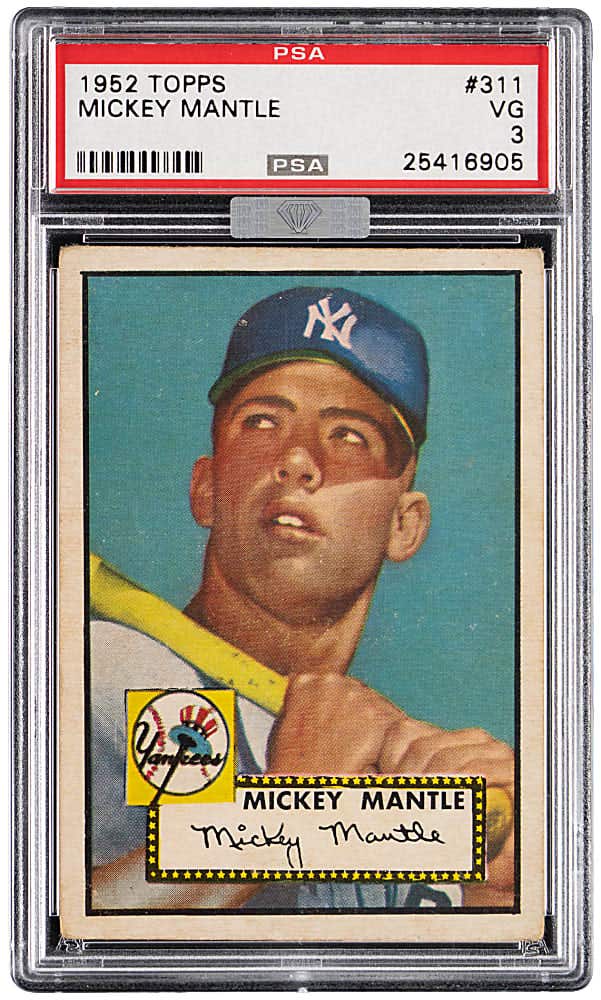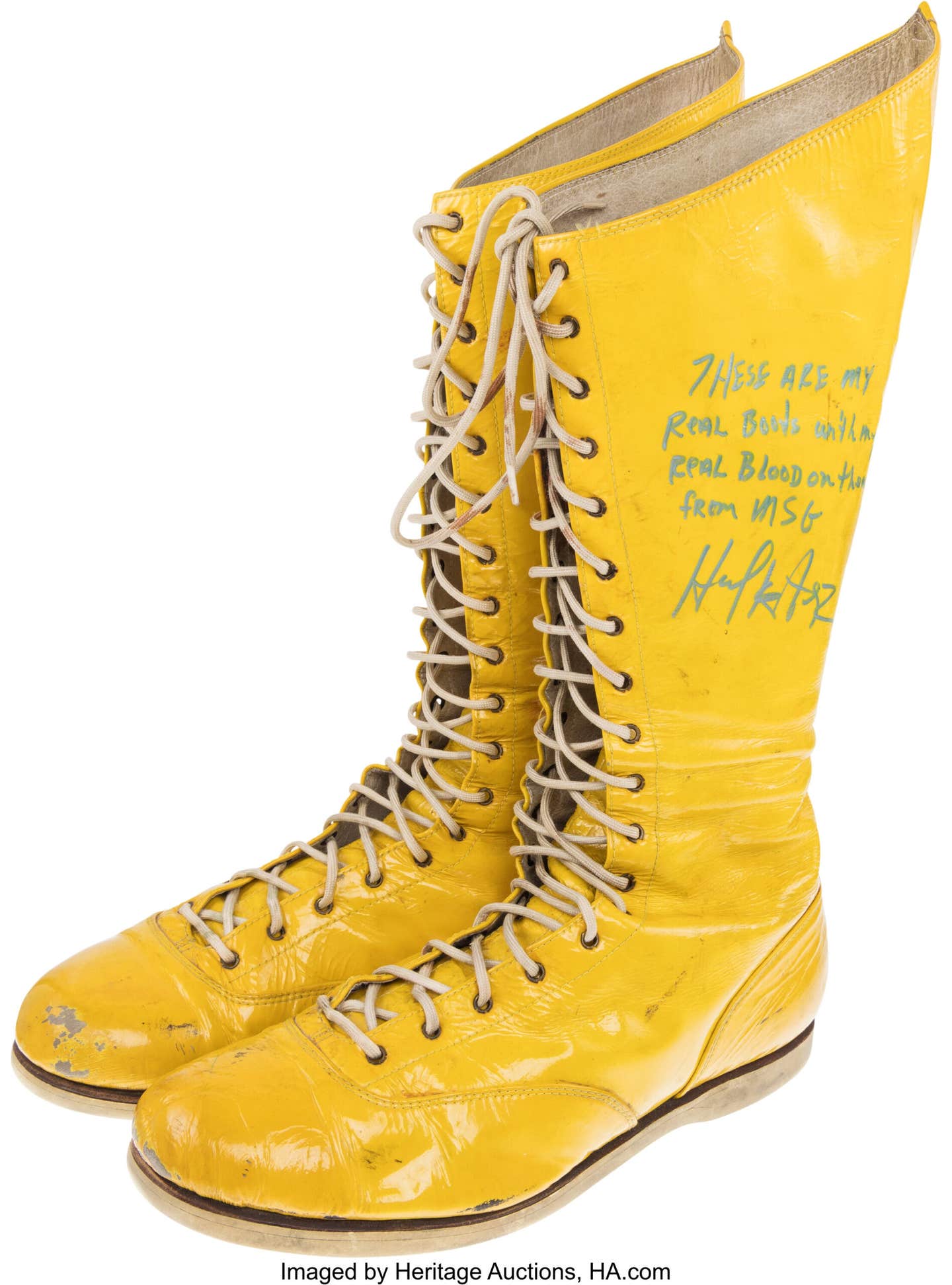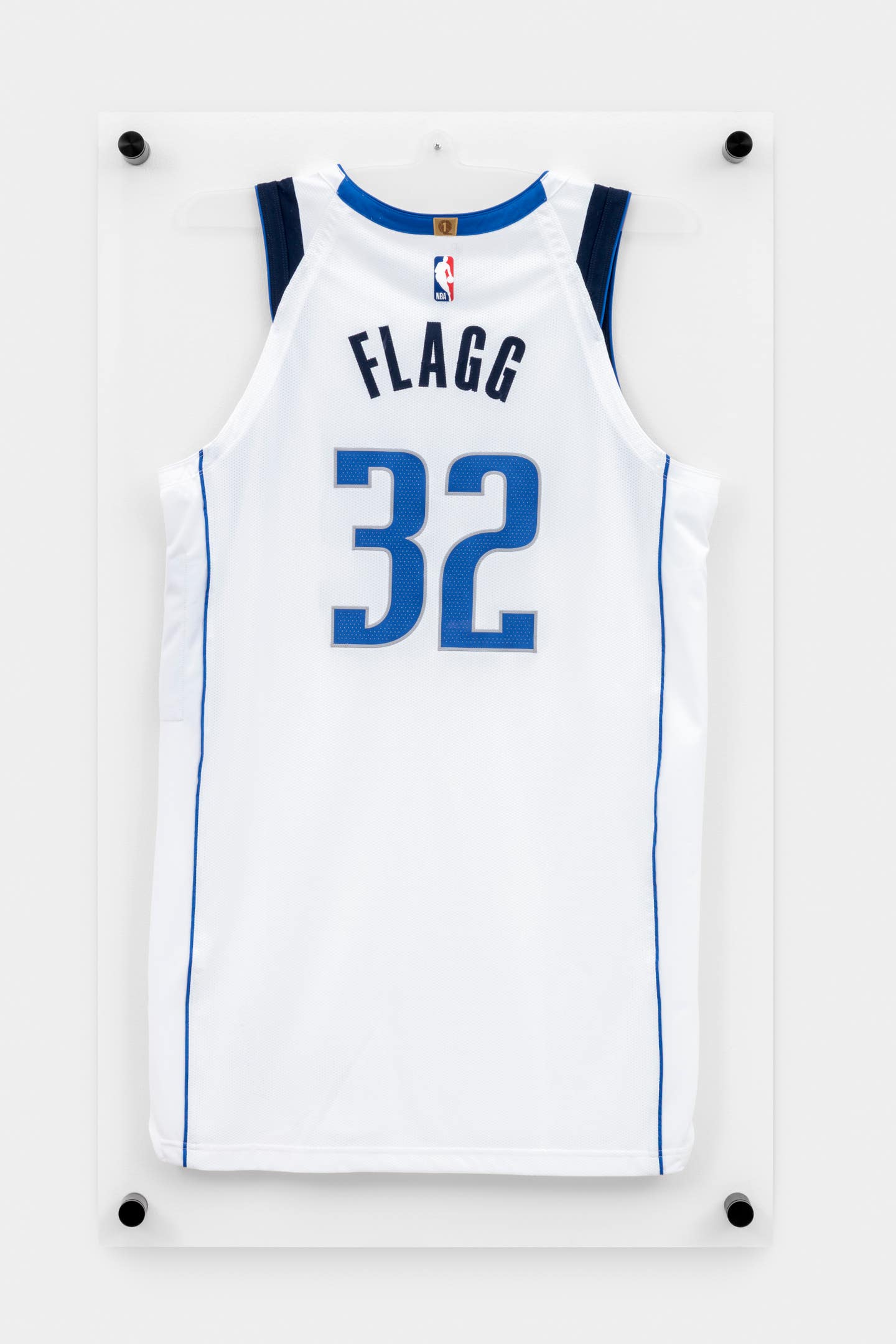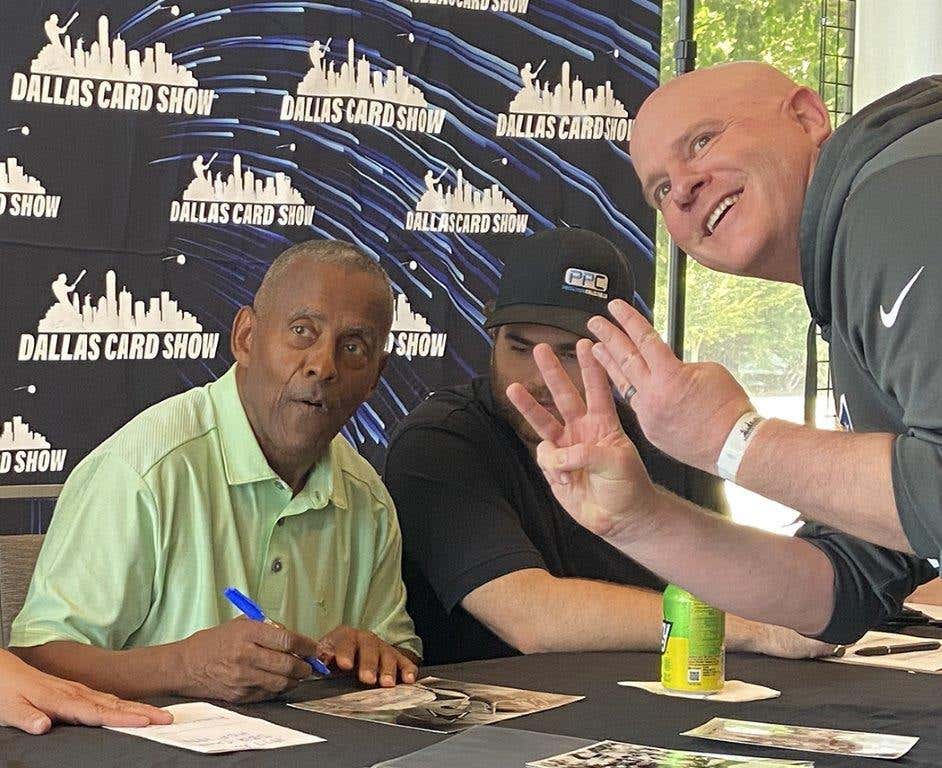Memorabilia
Dwight Clark Always has a ‘Catch’ to Remember
By Ross Forman
Editor’s note: Ross Forman has written about the National Sports Collectors Convention for 25 years – from the hoopla around the Pinnacle card of Nolan Ryan that was a limited giveaway and, by the end of the show that year, was selling for $1,000, to the hysteria around the autograph (or lack thereof) that National officials proposed for Steve Bartman to sign at the show one year in Chicago in exchange for $25,000.
Ross will be in Atlantic City, N.J., covering the 2016 National, too – with a full post-show report on his unique findings on the floor and the wild antics in the Tristar Autograph Pavilion.
This is one of Forman’s installments of On The Road To The National, profiling several high-profile autograph signers along the way both in print and online for SCD. Enjoy Ross’ feature story on Dwight Clark below.
Dwight Clark was an NFL wide receiver from 1979-87, playing in 134 career games, all for the San Francisco 49ers, with back-to-back Pro Bowl seasons in 1981-82. He was a two-time Super Bowl champion (SVI, XIX) who had 506 career receptions, and his uniform No. 87 has been retired by the team.
Clark came to San Francisco from Clemson University, a 10th round pick in 1979, and has since been inducted into the Clemson Hall of Fame.
Yet his entire career is simply remembered for one thing – The Catch.
And that’s not a bad thing. Not at all.
“At least everyone remembers the good one,” he said, laughing.
Clark went airborne to catch the winning touchdown pass thrown from quarterback Joe Montana in the NFC Championship Game on Jan. 10, 1982, against the Dallas Cowboys. The play helped propel the 49ers to their first Super Bowl championship.
San Francisco trailed 27–21 in the final minute of play. Clark leaped and caught a six-yard pass from Montana in the back of the end zone to give the 49ers a 28–27 victory, pushing San Francisco into Super Bowl XVI.
Clark finished the game with eight receptions for 120 yards and two touchdowns.
“It was one of (coach) Bill Walsh’s favorite plays, and we practiced it all the time,” Clark said. “It was kind of a pick play, which is kind of illegal these days. My job was to get in the defender’s way (who) was covering Freddie Solomon. Freddie and I were running different routes, and Bill Walsh’s coaching point to Joe was, ‘Hit Freddie if he’s open, but if he’s not, then throw it high enough where Dwight can jump up and catch it or it will go out of bounds; just don’t throw an interception.’
“Often (in practice), Joe couldn’t get it right; he’d throw it over my head. But in the game, it was perfect, though he threw off his back foot, which is why (Montana jokes) that it should have been called, ‘The Throw.’ ”
Clark’s reception led the 49ers into Super Bowl XVI, played at the Pontiac Silverdome in Michigan. The 49ers held off a fourth quarter flurry from the Cincinnati Bengals in Super Bowl XVI to win, as Montana grabbed the game’s MVP Award.
“It never gets old (talking about The Catch), and if I see it now, it still gives me chills because it really was like an exclamation point on a great season.”
Clark’s catch over Dallas defender Everson Walls didn’t split the two. Rather, the two are linked forever – and they even have done autograph signings together. “He’s a very nice guy and was a very good football player,” Clark said.
Clark’s career included 48 receiving touchdowns and 6,750 receiving yards. After eight seasons with the 49ers, Clark retired following the 1987 season. He was the team’s general manager in 1998 and in the same capacity with the Cleveland Browns from 1998-02.
But The Catch is Clark’s legacy – and boy does it look brilliant when illustrated on a photo of the play or a football or a 49ers helmet, along with his autograph.
“I was doing an autograph show years ago in New Jersey, and there was a kid in line in a wheelchair, and he was dressed head to toe in 49ers attire. As he’s working his way through the line, I was trying to think of something that I could do for him that was special,” Clark said.
Ultimately, Clark signed his autograph for the kid and added a diagram of The Catch.
Everyone else in line also wanted Clark to add the diagram to their autograph, too.
“When I got in the back area of that autograph show, I told the show promotor that I might be on to something,” Clark said.
Sure enough, Clark’s distinctive signature, coupled with a diagram of The Catch, is one of the best-looking autographs anywhere.
“I was a 10th-round draft pick, so, I thought I was going to go out to San Francisco, go through training camp and get cut. So, I brought my golf clubs and was going to play Pebble Beach after I got cut, and then go home,” he said. “I just thought I’d ultimately be able to tell my kids, ‘Yeah, I was drafted by the 49ers.’ ”
Well, his run with the 49ers was amazing.
“I was very lucky to be at the right place at the right time,” he said. “I fit in an offense with Joe Montana at quarterback, Bill Walsh as the head coach … and I turned it into a pretty good career.
“Joe Montana was not only the greatest NFL quarterback, but also the greatest football player of all time. It’s not even close. Sure, Tom Brady is great, but Joe Montana is without question the greatest.”
Clark said having his number retired by the 49ers was “pretty cool.”
But what if Clark didn’t play in the NFL? Clark said he would have gone into coaching, likely at his former high school in Charlotte, N.C.
Ironically, Walsh once told Clark to not pursue coaching “because it totally takes over your life, and you’re at the office 20 hours a day,” Clark recalls.
“I wouldn’t change anything; I had a great career,” he said.
Clark’s rookie card is a 1981 Topps (No. 422).
His cardboard legacy has also included releases from Panini America, Donruss and Upper Deck.
Ross Forman is a frequent contributor to SCD. He can be reached at Rossco814@aol.com.








